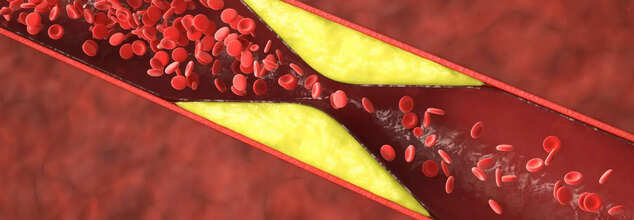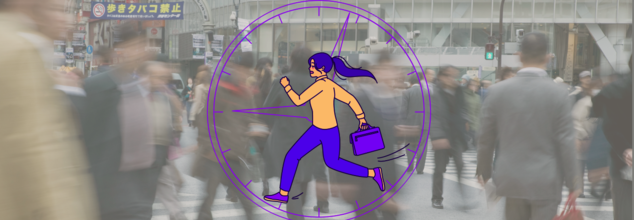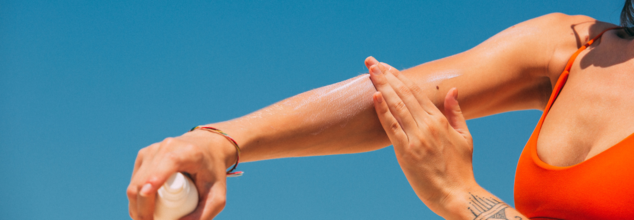
Credit: Canva
These 5 Factors Could Determine How Long You'll Live—And Cholesterol Is the Least Important
A study published in the New England Journal of Medicine has listed five key factors that impact the longevity of individuals. The research tracked participants for up to 47 years, assessing how five specific factors influenced their risk of death, longevity, and the number of healthy years they could gain by altering these habits. The conclusions of this study were based on data analyzed from over two million adults aged 18 and above across 39 countries.
Five Factors That Influence Longevity
- High blood pressure
- High cholesterol
- Diabetes
- Smoking
- Bodyweight, including being overweight and underweight
Women Could Add 14 Years To Their Lives
As per the researchers, women who didn't have these five risk factors at age 50 could potentially add more than 14 years to their lives, and men could gain almost 12 additional years. Men were most affected by these factors as those with all five faced a 94% chance of dying before 90, while their counterparts without these issues had just a 68% chance. Women with all five risk factors at age 50 had an 88% chance of dying before 90, whereas those without these problems had a 53% chance.
Diabetes Is The Main Factor
Out of all the factors, cholesterol was the least impactful of all. As per the study, people who lowered their cholesterol levels could only add 1.2 extra healthy years to their lifespan. On the contrary, individuals who quit smoking could potentially extend their lives by up to six years. Women who do not have diabetes could gain an extra 6.4 years, while men without the condition might see an increase of 5.8 years. Even a slight reduction in blood pressure could lead to an additional 1.8 healthy years, and achieving a normal BMI could contribute an extra 2.6 years, with variations depending on the region.
Importance Of Lifestyle Changes
The study reinforces the importance of lifestyle modifications in extending a healthy lifespan. The researchers noted that small but consistent changes in daily habits could significantly impact longevity. For example, maintaining an optimal weight through a balanced diet and regular physical activity helps control blood pressure, diabetes, and cholesterol levels, reducing overall health risks.
Smoking cessation emerged as the most crucial lifestyle change that could dramatically influence lifespan. Quitting smoking, even later in life, significantly reduces the risk of cardiovascular diseases, lung disorders, and certain cancers, contributing to longer and healthier lives. Similarly, diabetes management through dietary changes, regular exercise, and proper medical intervention plays a vital role in preventing complications and enhancing longevity.
Regional And Gender-Based Differences
The study also highlighted variations in longevity gains based on gender and geographical regions. For instance, men were more susceptible to the adverse effects of these five risk factors than women. This disparity could be attributed to lifestyle differences, genetic predisposition, or healthcare access.
Additionally, in certain countries with high obesity rates, maintaining a normal BMI was one of the most significant contributors to longevity. Meanwhile, in regions with lower tobacco consumption, factors like high blood pressure and diabetes had a more prominent role in affecting lifespan.

Health vs. Hustle: Is Modern Productivity Destroying Our Bodies?
I used to wear my exhaustion as a badge of honor. Early mornings, late nights, meeting all deadlines—I thought hustle was the hack to success. But one night, sitting in my apartment, I caught myself that I hadn't eaten a thing all day. My hands shook, my head pounded, and I couldn't recall when I last felt rested.
Studies affirm what my body was screaming. According to the World Health Organization, burnout is now recognized as an occupational phenomenon caused by chronic workplace stress. Overwork and lack of sleep have been linked to increased anxiety, depression, and weakened immune function through a 2021 study in Frontiers in Psychology.
Now I'm gradually but steadily unlearning hustle culture's toxic habits, staying mindful, and making 7 hours of nighttime sleep a priority. Gradually, I am learning that resting is not being lazy—it's recovery. I still work hard, but now I value balance more than burnout.
Do you too feel like you're always on the grind? Do you feel bad taking a break or even having a full night's sleep? Hello, the age of hustle culture—is where productivity rules and rest is a luxury. But beneath the glitzy surface of continuous striving, an escalating public health crisis is being quietly fostered. As doing without stopping emerges as the cultural standard, physicians are sounding warning alarms: bodies and brains are paying the ultimate price. Is contemporary productivity slowly undermining our wellbeing?
Modern Badge of Honor or a Ticking Time Bomb
In the high-achieving world of today, multitasking, late-night work sessions, and 24/7 availability are glorified. Dr. P. Venkata Krishnan, Senior Consultant in Internal Medicine, says that although this relentless pace of work might temporarily increase productivity, it also ravages our physical and mental health. "Sleep, which is crucial for body repair and brain function, is usually compromised. People are constantly fatigued, stressed, and emotionally drained—and by the time they realize it, it's already impacting their health," he cautions.
From bad diets and hours of screen time to sacrificing basic physical exercise, hustle culture makes unhealthy behaviors the norm. Long-term dependency on this stress-based lifestyle can result in obesity, high blood pressure, heart disease, and even immune system collapse.
Fallacy of "Success Equals Happiness"
Early socialization promotes that endless toil is the key to achievement—and thus happiness. But is this actually true?
"Rest and laziness is a myth," declares Dr. Krishnan. "Lots of people pursue success just to get burnt out, disconnected emotionally, and still feel unfulfilled." Social media is not helpful, glorifying entrepreneurs and influencers who "never stop grinding" and reinforcing the notion that productivity is the single route to purpose.
This erroneous reasoning disregards some of the most important things in life—mental well-being, relationships, and personal development. Genuine happiness, more and more people are finding out, is not generated by ceaseless productivity but by equilibrium: family meals, peaceful strolls, artful pastimes, and restorative relaxation.
Clinical Dietitian Reena Poptani also shares this view, highlighting the psychological cost of relentless ambition. "Mental health is too often the most neglected pillar of well-being. Chronic stress isn't only a mental load—it's a physical one as well," she adds. People with prolonged exposure to stress have greater risks of anxiety, depression, gastrointestinal disorders, and mood disorders.
Reena points out the way that disrupted sleep and erratic eating patterns have a chain reaction: "Sleep deprivation raises cortisol, the stress hormone, which derails the Gut-Brain Axis and compromises emotional control. Throw screen time and irregular meals into the mix, and you're looking at a recipe for metabolic and cognitive decline."
Why Holistic Health is Making a Comeback?
As the cases of burnout, hormonal disorders, and lifestyle diseases on the rise, the world consciousness is changing. More individuals are adopting holistic health, not as a fad, but as a requirement. Holistic health is concerned with the five most important dimensions of well-being, namely physical, emotional, mental, social, and spiritual.
"This new emphasis on well-being isn't about abandoning ambition—it's about making it workable," Reena explains. Habits like yoga, meditation, journaling, mindful eating, and walking in nature are catching on because they are effective. They ground us, lower inflammation, modulate sleep, and boost mood.
And owing to technology—smartwatches, meditation apps, sleep monitors—it's never been more convenient to make room for these practices in busy lives.
How to Reclaim Health in a Hustle-Obsessed World?
Rebalancing the scales isn't sacrificing your aspirations—it's achieving them in a way that nurtures long-term vibrancy. Dr. Krishnan believes in purposeful work boundaries, purposeful breaks, and mental reset techniques such as mindfulness. "Health isn't a detour from success—it's the highway to it," he believes.
Dietician suggests easy tips to maintain stress at bay:
- Begin the day with 10 minutes of meditation
- Engage in deep breathing during anxious work hours
- Disconnect from screens before bed
- Eat meals without distraction
- Maintain a gratitude journal
- Engage in regular physical activity, even a simple walk
These habits not only maintain physical and mental well-being but also realign our measure of success.
We're not asking you to give up your dreams—by no means. What we are urging is a deliberate shift: from burnout to equilibrium, from hustle to synergy. The world is beginning to awaken to the price of endless productivity, and the solution isn't to do less but to do better. Wellness isn't the antithesis of achievement—it's the basis for it.
As we redefine what it means to thrive, perhaps the real power lies in how well we live, not just how much we do.

Credits: Canva
World Homeopathy Day 2025: Can Homeopathy Relieve Seasonal Allergies? Here’s What Experts Say
As the seasons change and the air becomes heavy with pollen, millions worldwide prepare themselves for the all-too-familiar symptoms of seasonal allergies—watery eyes, itchy noses, sneezing spasms, and breathing difficulty. While pharmacies stock their shelves with antihistamines and decongestants, an increasing number of individuals are looking to a more natural way- homeopathy.
Often viewed with curiosity and skepticism, homeopathy has gradually gained a devoted following from people looking for relief without the need for drugs. But does it really hold a permanent key to allergies? While we celebrate World Homeopathy Day 2025, we take a deeper look into the science, philosophy, and medical professional opinion driving this age-old school of medicine in order to explore its use in seasonal allergy care.
Seasonal allergies, which are typically caused by pollen, dust mites, pet dander, or temperature change, result from an overreacting immune system response to the usual harmless things in the environment. The allergens mislead the immune system, leading to the release of histamines and other chemicals that trigger a cascade of symptoms including:
- Sneezing and congestion in the nose
- Runny nose and postnasal drip
- Watering, itching, or reddening of eyes
- Skin rashes or irritation
- Difficulty breathing or asthma-like symptoms in a few instances
These symptoms not only feel unpleasant—they can easily interfere with one's everyday life, sleep, and overall work.
Why Individuals Are Looking For All Natural Relief Options for Allergies?
Though traditional medications are quick to bring relief, most of them are associated with side effects like sleepiness, addiction, or constant weakening of the immune system. This has led to the global trend of natural and eco-friendly solutions—with homeopathy being a leader in the pack.
As Dr. Manju Singh, a leading homeopathy professional, puts it, homeopathy is becoming increasingly popular because it is more than symptom relief. "Homeopathy addresses the underlying cause by stimulating the body's own natural healing process. It doesn't cover up symptoms—it reconditions the immune system to react more naturally," she describes.
What is the Homeopathic Approach to Allergy Relief?
Homeopathy is based on the principle of "like cures like"—administering tiny doses of substances that, in larger doses, would produce the very symptoms a patient is suffering from. These extremely diluted remedies seek to stimulate the immune system gently to respond more effectively to allergens.
Some of the most frequently prescribed remedies for allergies are:
Allium cepa: Derived from onions, this is used for symptoms like watery eyes, sneezing, and clear nasal discharge—similar to what one experiences when chopping onions.
Sabadilla: Often recommended for severe sneezing, nasal congestion, and itchiness in the throat.
Natrum muriaticum (Natrum mur): Helpful in managing symptoms tied to weather changes, especially during spring and fall, and works by boosting the body’s defenses.
Dr. Singh adds, "These remedies are specifically matched to an individual's individual symptom pattern. Homeopathy is not an off-the-rack system—it's tailored, which is why it's critical to see a trained practitioner."
Does Homeopathy Really Work?
Clinical data on homeopathy is still controversial within the medical profession, mainly because of the ultra-diluted state of the medicines. But user reviews and increasing clinical interest keep it popular. In nations such as Germany, India, and the UAE, homeopathy is an accepted system of medicine, and patients often exhibit better tolerance to allergens and fewer flare-ups following regular treatment.
Numerous patients turn to us having exhausted all else. They have grown weary of medication that gets results for the moment but produces no lasting solutions," Dr. Singh says. "In several such instances, within a matter of months using homeopathic solutions, we witness lowered frequency and severity of the condition."
Is It Safe? What to Know Before Starting
One of the most attractive features of homeopathy is its low risk profile. The medicines are so diluted that they hardly produce side effects, and hence they can be used by children, elderly, and even pregnant women, as long as they are used under medical supervision.
Some people may even have a short-lived worsening of symptoms, referred to as a healing crisis, which practitioners see as an indication that the body is reacting to treatment. "This is an inevitable stage and usually goes away in no time," assures Dr. Singh.
Still, it's important not to self-diagnose or self-medicate, particularly when dealing with chronic allergies. A trained homeopath takes into account an array of physical, emotional, and environmental variables before suggesting a remedy.
In a time when lifestyle disorders and immune sensitivities are on the increase, individuals are looking for treatment philosophies that support long-term wellness objectives. Homeopathy, with its focus on individualization, natural healing, and immune strength, presents a strong alternative for individuals who wish to escape the side effects of steroids or lifetime reliance on antihistamines.
Dr. Singh stresses, "It's not a matter of either/or. Many of our patients incorporate homeopathy into their overall health regimens—along with dietary changes, stress reduction, and conventional care where appropriate."
So, can homeopathy cure seasonal allergies? For many, the answer is yes—but it's not a magic bullet. The true strength of homeopathy is its subtle, cumulative action, allowing the body to become less reactive over time. As word spreads and more people come forward with their success stories, homeopathy is moving into the limelight—not as a replacement, but as a trusted ally in the quest for holistic health.
If you’re considering homeopathy for allergy relief, consult a licensed practitioner and stay consistent. Relief may not come overnight—but for many, it’s a breath of fresh air in more ways than one.
Dr Manju Singh senior homeopathic doctor and expert, senior homeopathic medical officer at SBL Global in India

(Credit-Canva)
Your Sunscreen May Lose Its Protective Components If You Store Them Incorrectly
Even if you may not be used to it, sunscreens should be a regular part of your skincare routine, especially for the upcoming sunny days. While the sun may feel great after for a while, your skin will suffer damage if exposed to it for too long. It is good to have a stock of sunscreen so that you do not run short of necessary days, however the way you store them could sustain or destroy how effective they are.
Like other skincare and room temperature sensitive products, sunscreen also needs to be stored in a particular space to ensure that the product does not get damaged. In a viral TikTok video, Neal Rimmer, a senior scientific advisor at ‘Which?’, pointed out a big mistake many people make while carrying their sunscreen, especially when they are sunbathing. People usually don't bother keeping it in the bag after they are done using it, which means it lies around in the sun. That is ruining the shelf-life of the product as high temperatures decrease the product quality.
Sunscreen Has a Shelf Life
Just like milk or other products in your house, sunscreen doesn't last forever. Neal pointed out that it's really important to always check the date on your sunscreen bottle. You'll usually find a small symbol that looks like an open jar with a number and a letter next to it, such as '12 M'. This tells you how many months the sunscreen will be effective after you first open the bottle. Even if you haven't used much of it, if it's past this date, it might not protect your skin properly anymore. Using old sunscreen is like using a worn-out shield – it might not keep you as safe as you think. So, make it a habit to check the expiry information on your sunscreen before you use it each time, especially at the start of the sunny season.
You Shouldn’t Just Rely On Sunscreen
Putting on sunscreen is a great way to protect your skin, but it shouldn't be the only thing you rely on. Neal advised that for the best protection, we should use a combination of methods. Think of sunscreen as one layer of defense, and wearing clothes and a hat as extra layers. Clothes can cover up large areas of your skin that you might miss with sunscreen, and a hat can shield your face, ears, and neck, which are often very exposed to the sun.
Also, remember that sunscreen needs to be reapplied regularly – about every two hours – to keep working well. If you're swimming or sweating a lot, you need to put on more sunscreen even more often. Experts also recommend choosing a sunscreen with an SPF of 30 or higher. SPF stands for Sun Protection Factor, and a higher number means more protection from the sun's harmful rays.
© 2024 Bennett, Coleman & Company Limited

